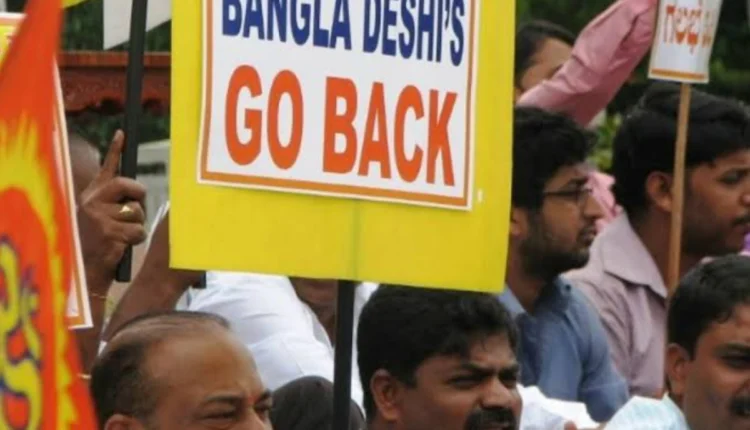Illegal Immigrants in India: Some Rohingyas and Bangladeshis Arrested
From Unakoti to Ahmedabad: Tracing the Trail of Illegal Immigration in India
Unakoti, Tripura – In a combined operation led by local authorities and security personnel, four Rohingyas and seven Bangladeshis were captured on allegations of illegal immigration. Just days after, identical instances transpired in Maharashtra’s Palghar district, where two Bangladeshis were seized, and in Gujarat’s Ahmedabad, when a staggering 13 Bangladeshis were apprehended. Disturbingly, fraudulent ration cards were found among the property of the detained persons in Ahmedabad, signifying a possible misuse of the system.
These recent occurrences have revived the discussion on establishing the National Register of Citizens (NRC), a mechanism intended at identifying and deporting illegal immigrants existing in India. Critics claim that the absence of adequate paperwork, such as Aadhaar and ration cards, among illegal immigrants further highlights the necessity for such restrictions.
Illegal immigration is a serious problem for the Indian government, since it presents socio-economic, cultural, and security difficulties. The inflow of Rohingyas and Bangladeshis has taxed local resources and led to increasing social tensions in impacted communities.
With public mood becoming more anxious, many residents are now pressing the government to take fast action. The introduction of the NRC is considered as a viable approach to address the problem at its base, by methodically identifying and deporting persons staying illegally in the nation.
As the country awaits the government’s reaction to these latest arrests, it remains to be seen if there will be a fresh push for the adoption of the NRC. The administration will need to strike a difficult balance between combating the problem of illegal immigration and preserving the rights and welfare of those impacted.
In the following days, stakeholders and people alike will carefully observe events, hoping for appropriate steps to defend the nation’s security and integrity, while preserving humanitarian ideals.

